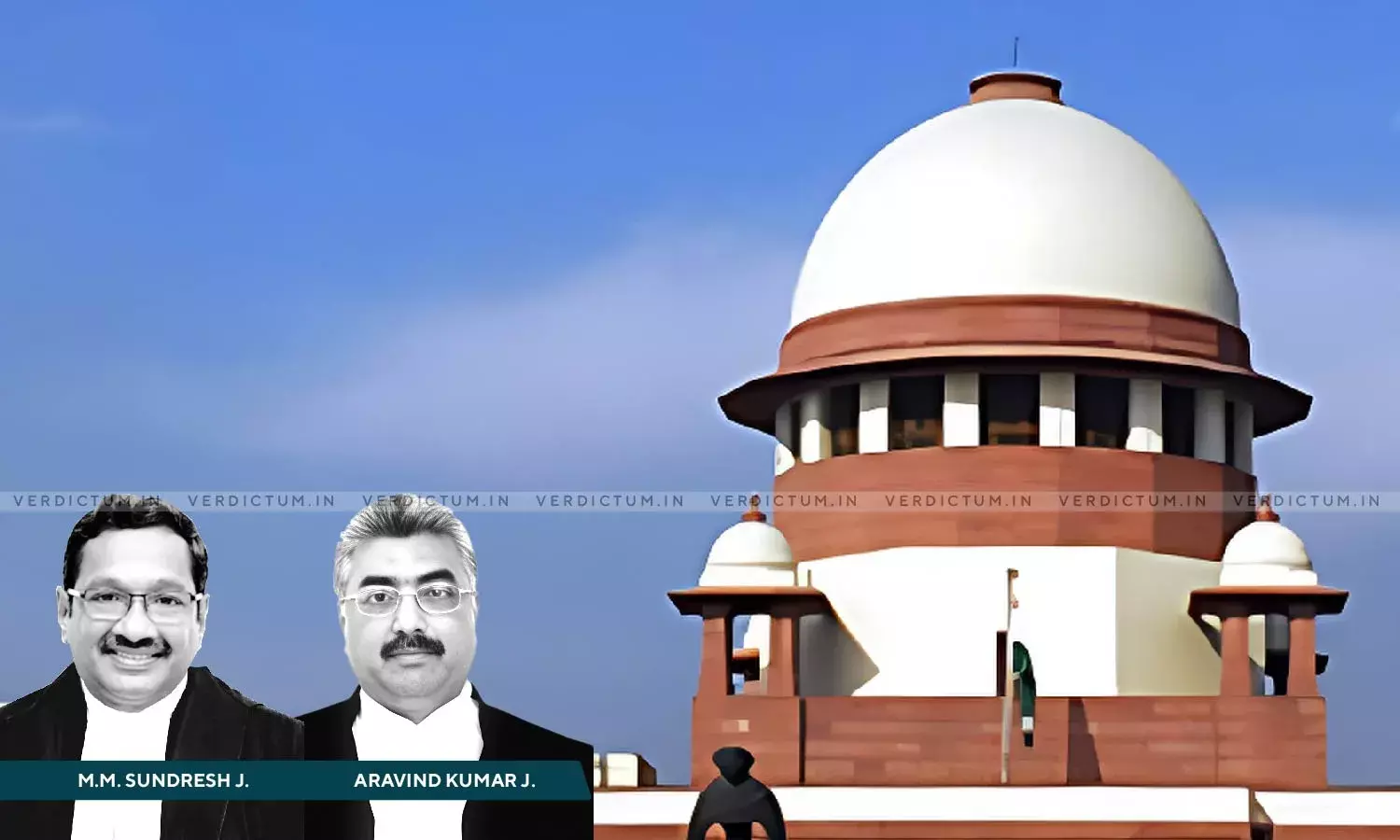Duty Of Detaining Authority & Right Of Detenue U/Article 22(5) Of Constitution: Supreme Court Explains

The Supreme Court, in a recent judgment, explained the scope of Article 22(5) of the Constitution that deals with duty of the authorities in serving the grounds of detention to detenue and detenue's right to make a representation.
The Court dismissed an appeal challenging the detention order of an individual apprehended for attempting to smuggle gold and foreign currencies without customs detection.
"There lies an underlying duty and obligation on the part of the authorities in not only serving the grounds of detention as soon as the case may be, after due service of the detention order and communication of the grounds of detention along with the documents relied upon in the language which he understands, but also for the purpose of affording him the earliest opportunity of making a representation questioning the detention order.”, the Bench comprising Justice M. M. Sundresh and Justice Aravind Kumar observed.
Advocate Shariq Ahmed appeared for the Appellant and Additional Solicitor General K. M. Nataraj appeared for the Union.
The case involved the apprehension of individuals attempting to smuggle gold and foreign currencies without customs detection. Subsequent investigations led to the detention of one individual under the Conservation of Foreign Exchange and Prevention of Smuggling Activities Act, 1974 (COFEPOSA Act).
The detenue, who had initially obtained bail, refused to accept the grounds of detention despite multiple attempts by authorities. A panchnama was signed, indicating the detenue's refusal, but he later filed a writ petition claiming non-receipt. The High Court dismissed the petition, stating that the detenue had indeed refused to accept the grounds of detention, as evidenced by the panchnama. Aggrieved, the Appellant (brother-in-law of the Detenue) approached the Supreme Court challenging the detention order.
The Court observed that Article 22(5) of the Constitution had two essential components. Firstly, it imposed a duty on authorities to promptly serve the grounds of detention, including relevant documents, to the detenue in a language they understood after issuing the detention order. This facilitated the detenue's earliest opportunity to challenge the detention order.
The Bench noted that the second part emphasized the detenue's right to make a representation. To exercise this right effectively, the detenue needed to possess adequate knowledge of the basis of the detention order, distinguishing between background facts and the specific grounds of detention. The detenue was to be informed orally or in writing about their right to make a representation, considering potential differences in literacy levels.
The Court noted that the effective knowledge of the detenue was crucial in deciding whether to challenge the detention order through a legal process, including making a representation to relevant authorities, such as the detaining officer.
Regarding communication methods, the Court observed that both oral and written means could be employed. In cases where the detenue could not comprehend the language, a mere verbal explanation was insufficient. Similarly, the Court had emphasized that when a detenue consciously refused to receive the grounds of detention, they must be informed about their right to make a representation. The significance of whether the grounds explicitly stated this right diminished in such scenarios. The detenue's potential change of mind, even after refusal, had underscored the importance of informing them about their right.
The Bench observed that verbal communication was unnecessary when the grounds, received in a language known to the detenue, explicitly stated their right to make a representation. However, verbal notification became essential when the grounds did not contain such an indication.
Furthermore, the Court noted that the detenue was not entitled to any relief due to his deliberate suppression of facts. The detenue had refused to receive the grounds of detention, despite being proficient in English, and had approached the court with unclean hands.
Consequently, the Court found no procedural error by the authorities, as they had made efforts to translate documents into Bengali, and the detenue was well aware of his right to make a representation. The Bench had emphasized that the detenue, having been informed of the grounds of detention, could not demand access to all facts, including telephonic conversations, especially when he did not exercise his right to make a representation. The focus of the court's scrutiny had been on the validity of the detention order, not a regular criminal case against the accused.
The Court rejected other grounds raised by the detenue in light of previous discussions and noted that the grounds of detention were attempted to be served promptly, on the day following the detenue's detention.
Accordingly, the Court dismissed the Appeal.
Cause Title: Sarfaraz Alam v Union Of India & Ors (2024 INSC 18)
Appearance:
Appellant: M/S. Ahmadi Law Offices, Talha Abdul Rahman, Tariq Ahmed, Ismail Zabiulla, Akshay Sahay, Advocates
Respondent: Mukesh Kumar Maroria, Vanshaja Shukla, Rajat Nair, Shailesh Madiyal, Vatsal Joshi, Anuj Srinivas Udupa, Padmesh Mishra, Yogya Rajpurohit Advocates

